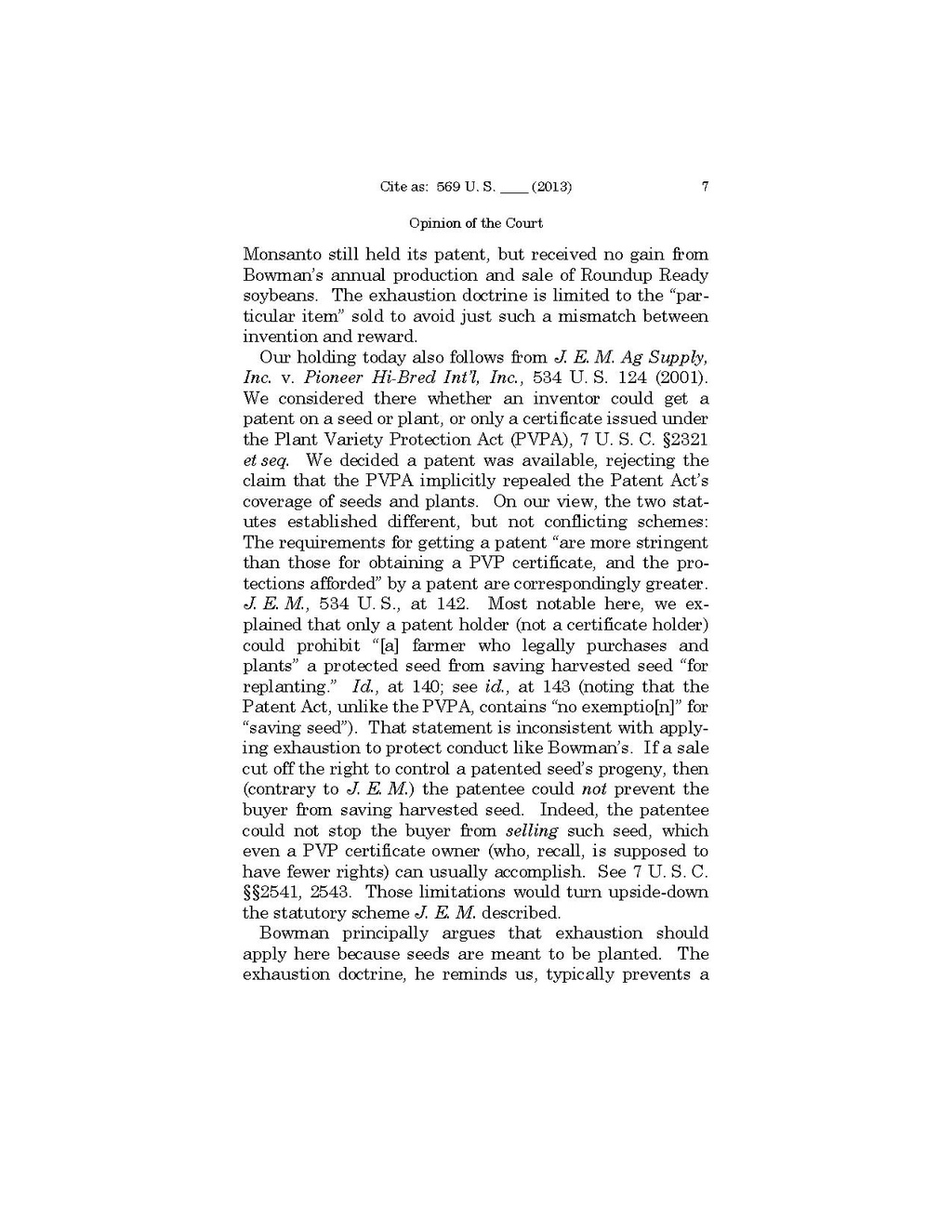Opinion of the Court
Monsanto still held its patent, but received no gain from Bowman’s annual production and sale of Roundup Ready soybeans. The exhaustion doctrine is limited to the "particular item" sold to avoid just such a mismatch between invention and reward.
Our holding today also follows from J. E. M. Ag Supply, Inc. v. Pioneer Hi-Bred Int'l, Inc., 534 U. S. 124 (2001). We considered there whether an inventor could get a patent on a seed or plant, or only a certificate issued under the Plant Variety Protection Act (PVPA), 7 U. S. C. §2321 et seq. We decided a patent was available, rejecting the claim that the PVPA implicitly repealed the Patent Act’s coverage of seeds and plants. On our view, the two statutes established different, but not conflicting schemes: The requirements for getting a patent "are more stringent than those for obtaining a PVP certificate, and the protections afforded" by a patent are correspondingly greater. J. E. M., 534 U. S., at 142. Most notable here, we explained that only a patent holder (not a certificate holder) could prohibit "[a] farmer who legally purchases and plants" a protected seed from saving harvested seed "for replanting." Id., at 140; see id., at 143 (noting that the Patent Act, unlike the PVPA, contains "no exemptio[n]" for "saving seed"). That statement is inconsistent with applying exhaustion to protect conduct like Bowman’s. If a sale cut off the right to control a patented seed's progeny, then (contrary to J. E. M.) the patentee could not prevent the buyer from saving harvested seed. Indeed, the patentee could not stop the buyer from selling such seed, which even a PVP certificate owner (who, recall, is supposed to have fewer rights) can usually accomplish. See 7 U. S. C. §§2541, 2543. Those limitations would turn upside-down the statutory scheme J. E. M. described.
Bowman principally argues that exhaustion should apply here because seeds are meant to be planted. The exhaustion doctrine, he reminds us, typically prevents a
